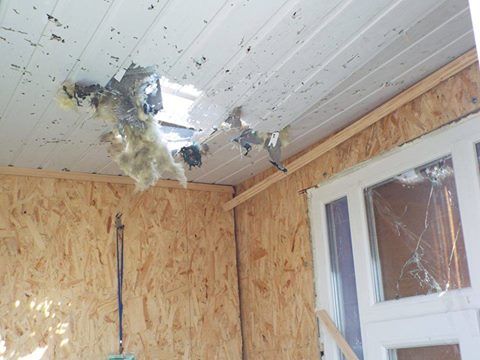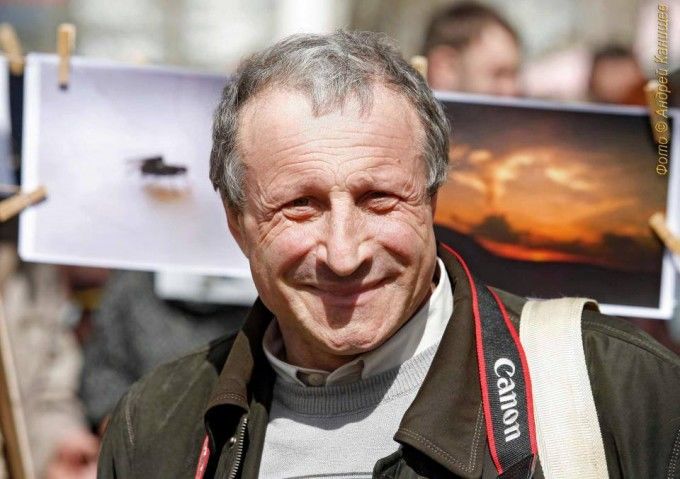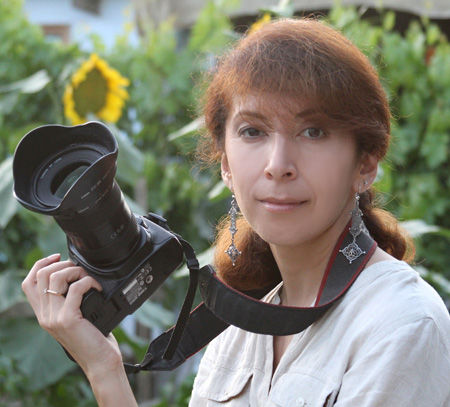Ukraine Day 792: LIVE UPDATES BELOW.
Yesterday’s live coverage of the Ukraine conflict can be found here.
- READ OUR SPECIAL REPORT:
An Invasion By Any Other Name: The Kremlin’s Dirty War in Ukraine
Aleksandr Zakharchenko, the leader of the self-declared Donetsk People’s Republic (DNR), has announced that local elections, originally planned for April 20, are to be postponed until July 24.
The elections, which would not be monitored by either the OSCE or Ukrainian officials, constitute a violation of the Minsk agreements as, according to the protocol, they would have to be held in accordance with Ukrainian law. Instead, Zakharchenko has repeatedly stated that such votes would not comply with Ukrainian legislation and that mainstream Ukrainian parties (which have supported the war against Russian-backed forces) would be barred from participation.
Today’s announcement therefore relieves some temporal pressure on what little remains of the Minsk peace process.
–Pierre Vaux
The total number of attacks represents a significant drop following two weeks of nearly continuous intense fighting, but as we have noted before, such peaks and troughs are merely party of a repeating pattern of violence this year:
Colonel Oleksandr Motuzyanyk, military spokesman for the Presidential Administration, announced at a press conference that three soldiers had been wounded in Stanitsa Luganskaya, four in Avdeyevka, and one more in Marinka.
Motuzyanyk broke down the official record of fighting as follows:
In the Lugansk region, Russian-backed fighters conducted six attacks, firing on a frontier checkpoint outside Stanitsa Luganskaya and attacking troops near Tryokhizbenka.
The Lugansk Regional Military-Civil Administration posted photos of the damage done to the checkpoint by grenade launcher fire:
Towards Donetsk city, 11 attacks were recorded, six of them conducted with mortars. Fighting was reported across the western and northern fringes of the separatist-held regional capital, from Krasnogorovka to Avdeyevka, as well as Novgorodskoye, west of Gorlovka.
However, “for the first time in many months,” there was no fighting near Svetlodarsk, Zaytsevo or Mayorsk, near Gorlovka.
South of Donetsk, the military reported 29 attacks, two of them with artillery, nine with mortars.
The heaviest fighting overall, Motuzyanyk said, was seen near Marinka, southwest of Donetsk, and Dokuchaevsk, a separatist-held town on the contested highway between Donetsk and Mariupol.
The Colonel claimed that more than 120 mortar rounds and 30 artillery shells were fired on Ukrainian positions over the day.
Vladislav Voloshin, a press officer for the Ukrainian military operation in the Donetsk city area, told the 112 television channel that Russian-backed fighters may be economizing ammunition until the expected arrival of another ‘humanitarian convoy’ from Russia on April 21. Kiev claims such convoys are used to ferry ammunition and supplies to Russian and proxy forces in Ukraine.
Meanwhile, the ‘defense ministry’ of the self-declared Donetsk People’s Republic (DNR) claimed that Ukrainian forces had conducted 38 attacks over 24 hours, firing 299 shells from mortars and tanks.
According to the DNR, Ukrainian attacks were concentrated on the outskirts of Donetsk and Gorlovka, as well as Dokuchaevsk and the the village of Mikhailovka, near the River Kalmius east of Volnovakha.
— Pierre Vaux
Ilya Novikov, one of Nadiya Savchenko’s lawyers, reports that his client has ended her hunger strike following a direct intervention by Ukrainian President Petro Poroshenko.
Translation: Have just been party to a historic conversation. President Poroshenko rang Nadiya Savchenko in SIZO*. She has discontinued her hunger strike.
*= Sledstvenniy Izolyator – pre-trial or remand detention centre
Translation: Together with Nadiya Savchenko’s mother, Maria Ivanivna, and her sister Vira, I asked Nadiya to end her hunger strike. Thankful that she has agreed.
As we reported earlier, Savchenko’s health has deteriorated drastically since going on a “dry” hunger strike from April 6.
Readers will remember a similar incident from last month, when Savchenko ended another dry hunger strike after Ukrainian consuls received what appeared to be a letter from Poroshenko. However the letter was then revealed to be a forgery:
This time, with immediate confirmation from the official Twitter account of the President, the intervention appears to have been genuine.
Novikov also reported that lawyers for Aleksandr Aleksandrov and Yevgeny Yerofeyev, two Russian soldiers captured in Ukraine and convicted of terrorism charges yesterday, have decided not to appeal the verdict, allowing the possibility for proceedings on an exchange deal for Savchenko could be conducted.
This was confirmed to Interfax-Ukraine by Yerofeyev’s lawyer, Oksana Sokolovska:
“We believe that this verdict is unlawful but we are not going to file an appeal,” Sokolovska told Interfax-Ukraine on Tuesday.
The decision has been made jointly by the defense lawyers of both Russians, she said.
— Pierre Vaux

The occupying Russian authorities in Crimea are engaged in another round of repressions on the peninsula. Having yesterday formally suspended the Crimean Tatar Mejlis on grounds of “extremism,” the authorities conducted raids on the homes of Crimean journalists this morning.
Russian FSB agents and police raided the home of Nikolai Semena, a journalist with RFE/RL’s Crimean service, Krym Realii, and arrested him on charges, the state-owned TASS news agency reports, under Part 2 Article 280.1 of the Russian Criminal Code.
This law, which was introduced in July, 2014, after the Russian invasion and annexation of Crimea, criminalizes “public calls for the implementation of actions aimed at violating the territorial integrity of the Russian Federation.”
What this means, in effect, is that any public criticism of the Russian occupation of Crimea is illegal.
Semena is the first person to have been charged under this law.
According to the TASS report, Semena, who is not named in the article but referred to as a Krym Realii journalist, is being charged under the second part of the article, which covers criticism of Russian territorial integrity by means of mass media or the Internet, and specifies the following punishments:
“Compulsory work for a term of up to 480 hours, with disqualification from holding certain posts or engaging in certain activities for a period of up to three years, or imprisonment for a term of up to five years.”
KrymInform reports that Nataliya Poklonskaya, the chief prosecutor of Crimea, said that the charges were related to publications on the blockade of the occupied peninsula, mounted by Ukrainian activists on the frontier.
“In fact they justify the actions of extremists and terrorists. We will not allow crimes to be committed against citizens of the Russian Federation and Russia as a whole. The status of a journalist obliges one to comply with the demands of the law,” says Poklonskaya.
The criminal case was opened by the investigative organs of the FSB department for Crimea and Sevastopol. It will be overseen by the regional prosecutor.
“The course of the investigation has been placed under the control of the prosecutor’s office. At the current time a decision is being made on whether to place the journalist under remand.”
Semena was not the only journalist targeted by the occupying authorities this morning.
According to KrymInform, raids have been taking places at seven address in Crimea – five in Simferopol, and two others in Yalta and Sevastopol.
Ukrainska Pravda reports that Mustafa Dzhemilev, Ukrainian MP and former leader of the Crimean Tatar Mejlis, told reporters that raids had been conducted at the home of Tatar photographer Lenyara Abibulaeva.
Meanwhile journalist Lilya Budzhurova reported that another Crimean Tatar, Ruslana Lymanova, had been arrested.
Lawyer Emil Kurbedinov later confirmed all three names to Obozrevatel.
Olga Skripnik, coordinator of the Crimean Human Rights Group, told Krym Realii that no no contact has been established so far with the three journalists.
Yesterday, under Poklonskaya’s orders, the Russian Ministry of Justice formally suspended the activities of the Crimean Tatar Mejlis, the self-governing body for Crimean Tatars that has been under threat from repeated raids and harassment since the invasion of the peninsula.

Russia Suspends Crimean Tatar Mejlis
The Russian Justice Ministry has suspended the Crimean Tatars' highest ruling body due to what it called "extremist activities," a fresh escalation in Moscow's crackdown against a group that has broadly opposed Russia's forcible annexation of Ukraine's Crimean Peninsula.
Today Andriy Parubiy, the new Speaker of Ukraine’s parliament, the Verkhovna Rada, said that the move was a “demonstration of Russian fascism.”
Speaking at the opening of a parliamentary session this morning, Parubiy said:
“A whole people, our Crimean Tatar brothers, have been declared an extremist organisation. This is the first time since the end of the epoch of the dictators Stalin and Hitler that a whole whole nation has been declared extremists. And this is a demonstration of Russian fascism.
On the 18th of May, 1944, Stalin signed a criminal decree, which led to the terrible tragedy of the Crimean Tatars. On the 18th of April, 2016, the Russian totalitarian authorities are banning the Mejlis.”
Parubiy called on international organisations to respond to the repressions, and asked the Ukrainian Foreign Ministry to review the possibility of calling an emergency session of the UN Security Council to discuss the issue.
— Pierre Vaux
Yesterday, Aleksandrov and Yerofeyev were sentenced to 14 years of prison on charges of terrorism.
Savchenko refused to appeal her sentence within the rigged Russian criminal justice system, and it has gone into effect but she has not been sent on a convoy to a labor colony. In order for an exchange to take place, lawyers have said the Russians’ sentence would also first have to be upheld or overturned upon appeal.
— Catherine A. Fitzpatrick





